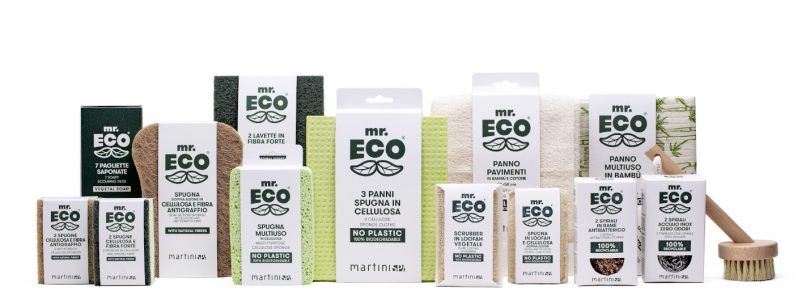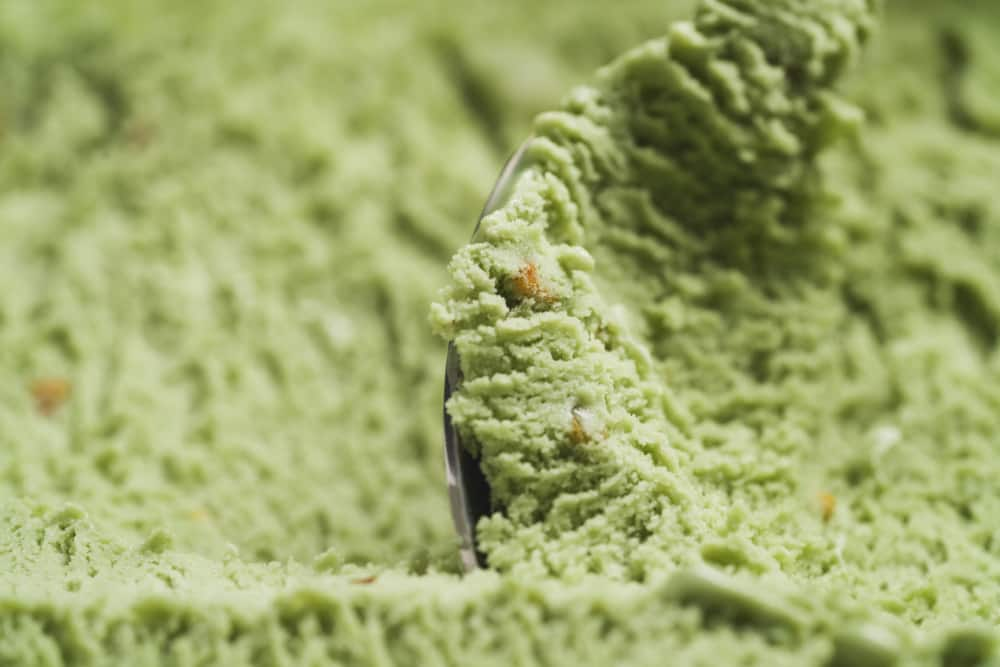Revolution in the world of home and personal care thanks to products made of cellulose and natural fabrics such as cotton and hemp, to protect the environment and our skin
They look like sponges, but they're not: their texture is made of cellulose, it comes from trees and not from oil and is so friendly to the environment as well as to our skin. They are called Mr. Eco and are the result of a long research in the field of natural and sustainable materials that the MartiniSPA company in Coenzo, in the province of Parma, has been running for more than three decades, long before sustainability and respect for the environment became concepts of daily use.
"We are artisans passionate about our work and with great care for the needs of nature," he explains Fulvio Martini, owner of MartiniSPA. Our family was born as a pig farmer, my grandfather was already concerned about animal welfare at the time. I think it was a kind of transmission in the DNA of certain values such as quality, beauty. I was lucky enough to be born and grow up in an environment where there was respect for nature, for everything that was alive, for everything that was green: I think I could not have done otherwise .
Of the line Mr. Eco Sponges they include cellulose sponges of vegetable origin, loofah scrubbers and natural fibers, antibacterial copper and stainless steel scouring pads, wooden dish brushes with sisal bristles and bamboo viscose cloths, as well as strong fiber washcloths and soapy wool pads . It is about 14 innovative references, with a contemporary design and made with biodegradable and recyclable materials.
The story of MartiniSPA
The history of this company was born among the sketches of the greatest architects of the 1950s, Scarpa, Giò Ponti, Franco Albini, the Castiglioni brothers. In those years Ugo Martini founded Martini Poliresine which, in close contact with the great names of Italian design of those years, transformed polyurethane for various companies in the furniture industry.
"My father started in the 1950s with this new material that had been discovered by Bayer," explains Fulvio Martini. We did upholstery for furniture and I grew up among the most famous architects of the 1950s. We made prototypes of their projects .
From there we have come a long way. The fil rouge that has always distinguished this company over the years has been the curiosity. Thanks to this, unique collections dedicated to home and personal care were born.
"We work on the epidermis as well as cleaning the house. We have always had a certain sensitivity, which we have carried forward over all these years. He was immediately in the company a research and development group to design and discover new materials that are sustainable and respectful of the ecosystem. The desire and desire to distribute a product that is good for the environment has made us less sensitive to economic issues ".
To produce the Mr. Eco line, we start from a cellulose-based product, instead of oil, and then the processing steps are similar to those of non-ecological sponges. Cellulose is bought in blocks, and thanks to a mix of water and other substances it remains soft and moist, but not attackable by microbes. Behind each sponge or cloth there is a special treatment that allows you to market a hygienic product with ecological and bio characteristics.
Not just home….
MartiniSPA cares about the health of our skin as well as our home. Among the references for Skin Care, Massage Natural is an ideal product line for every moment of well-being. Toning and exfoliating sponges, fabric gloves for a delicate scrub, brushes in beech wood and natural bristles to reach even the most difficult areas such as the back: all products are made with natural materials, which allow a deep but delicate cleaning, suitable for all skin types, even the most sensitive.
«In recent months, Martini points out, «we are studying products with natural fibers such as organic cotton, the hemp and the jute, fibers that are being rediscovered. We aim to have fabrics processed in Europe, so that the entire supply chain is traceable. All enclosed in eco-sustainable packaging, of course .
In addition to MartiniSPA, Fulvio Martini is the owner of Casale del Mare, farmhouse immersed in the magic of the Tuscan hills, and Fortulla, an organic company based in Castiglioncello that produces and distributes strictly organic wine, grappa and extra virgin olive oil in Italy and abroad. From the love for the land, fruits are born that inspire original creations: some MartiniSPA sponges are in fact made with the addition of natural ingredients from olives and vines of the Tuscan estate. A true model of circular economy where everything is transformed.
MartiniSPA also pursues sustainability through investments in natural energy: the company since 2012 produced over 2,730,000 KW of solar energy, has reduced CO2 emissions thanks to the control of the production chain and the optimization of logistics, has created a forest of 172 trees in the land around the company. More sustainable than that!

